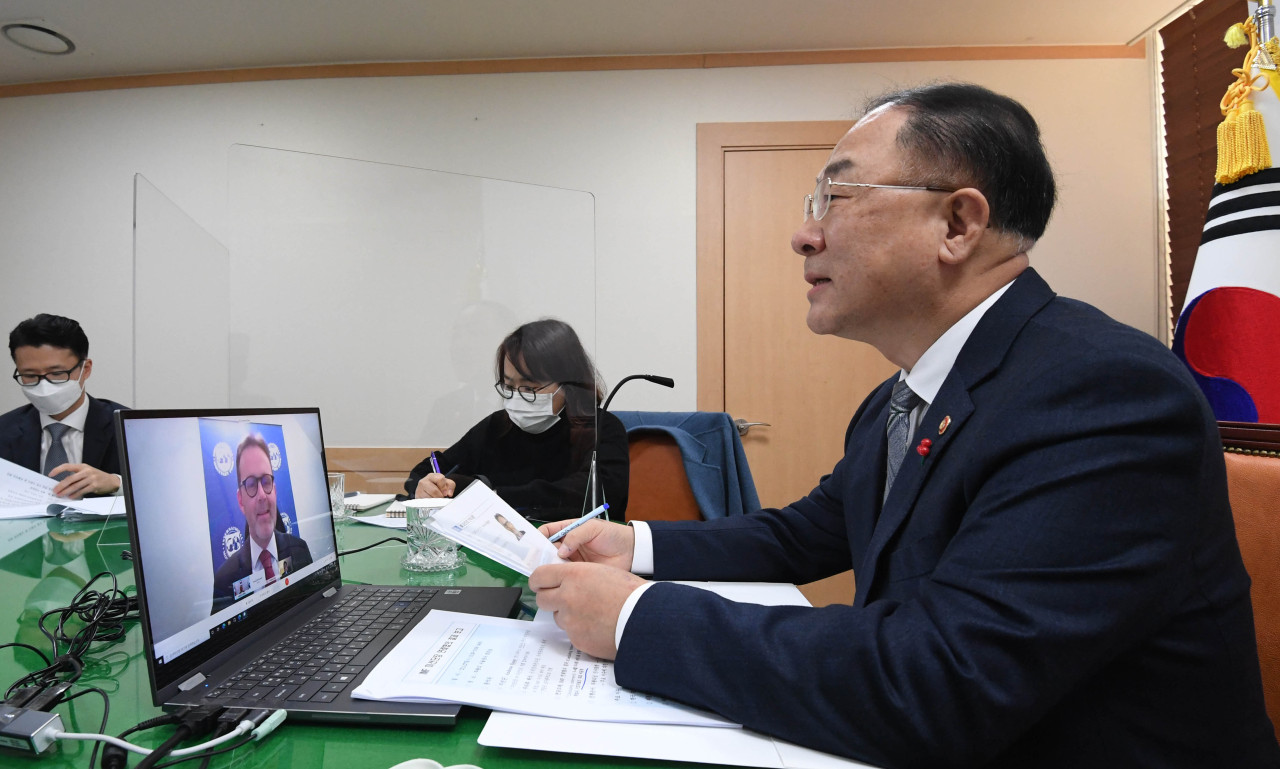 |
This photo, provided by the Ministry of Economy and Finance on Wednesday, shows Finance Minister Hong Nam-ki holding a conference call with Andreas Bauer, Korea mission chief at the International Monetary Fund, to discuss the country's economic situations. (Ministry of Economy and Finance) |
The International Monetary Fund (IMF) said Wednesday that it would be desirable for South Korea to selectively provide assistance to sectors and people hit hard by the pandemic as economic recovery is uneven.
During a conference call with Finance Minister Hong Nam-Ki, Andreas Bauer, Korea mission chief at the IMF, said South Korea needs to maintain policy support to tackle economic slumps caused by the new coronavirus outbreak.
An IMF team held its annual meetings with South Korea's finance ministry, the central bank and other institutions between Jan. 13-26 to discuss the country's economic situations and overall economic policies.
Every year, IMF delegations visit South Korea for consultations. But this year, the meetings were held via videoconference due to the COVID-19 pandemic.
Hong shared Bauer's view about unbalanced growth, saying that he thinks the government needs to selectively and massively support affected people to tackle problems from an uneven economic recovery.
The COVID-19 pandemic has been deepening inequality in South Korea as the pace of recovery is different between sectors and businesses, known as a "K-shaped recovery."
The minister said the country is closely monitoring the movement of ample liquidity as money unleashed from the country's aggressive fiscal and monetary policy is flowing into assets such as stocks and real estate.
Hong noted that close attention should be paid to the pace at which the government's debt is fast rising, according to the finance ministry.
The IMF also welcomed the country's efforts to introduce fiscal rules designed to enhance fiscal soundness.In October 2020, the finance ministry unveiled a proposal that will limit its debt to 60 percent of gross domestic product (GDP) and its fiscal deficit to 3 percent starting in 2025. The new rule is subject to parliamentary approval. (Yonhap)








